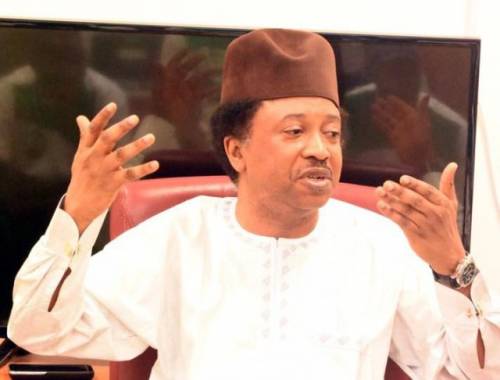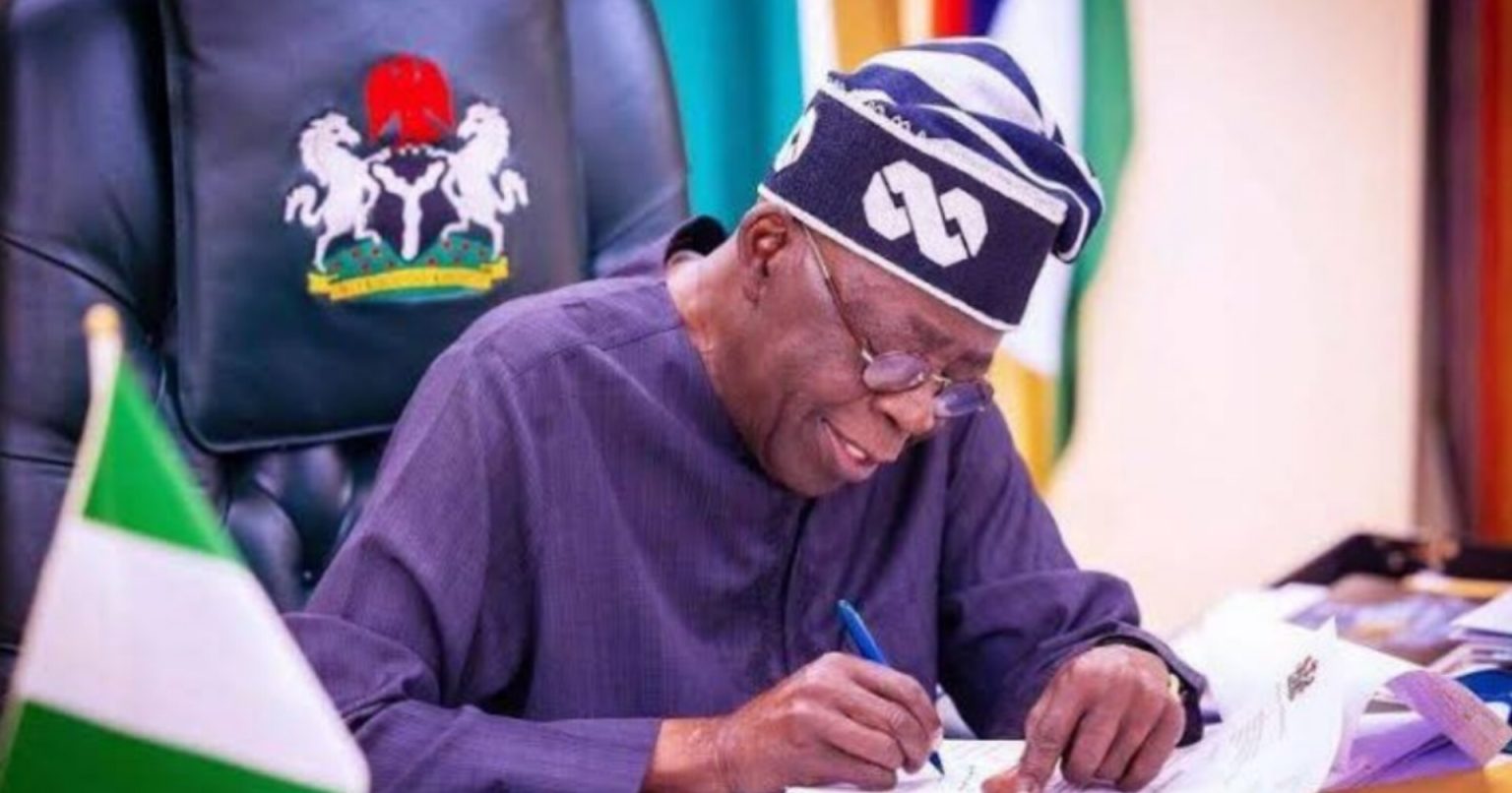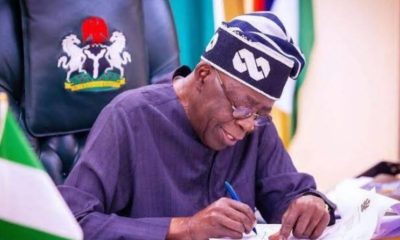Guest Columnist
Why North is jittery over Tinubu’s new policy

There has been anxiety among most key northern elite, leaders and political leaders over the ongoing proposal on regional government in Nigeria that has been sent to President Bola Tinubu, marking a significant step towards potential constitutional change. This has generated a lot of debates, especially among the northern elite who have never been in support of this restructuring.
The drafter of the private bill, Dr. Akin Fapohunda, who had previously indicated his intent to engage with members of the National Assembly before the bill’s transmission, explained his decision to send the proposed law directly to President Tinubu.

The bill, advocating a return to the regional system of government, aims to address long-standing concerns regarding the current federal structure established under Decree 24 of 1999, which was implemented by the then military government without the explicit consent of the Nigerian people.
The proposed law is before the National Assembly and is expected to be passed into law before October 1, 2024.
This news has been generating a lot of reactions. A few days back, one activist from the north gave some reasons why the Fulani are against regional government.
According to him: “We the Fulani won’t allow regional government. It will work against everything we planned for. It is against the words of our father Ahmadu Bello and the dream of our father Uthman Dan Fodio.
“It is either you guys are not thinking or you think we the Fulani are not thinking. As far as you will use the Senate or House of Representatives for the introduction of the regional government, it won’t work. We are the Fulani and we are in control of those chambers. We are in control of the Army, Air Force, Immigration, Customs and Police. So, we are in charge. If you complain, we will tell you to go to the Senate, knowing that we are in control. It doesn’t matter who is the Senate president or the President, we are still in charge. The Yoruba can play politics with bill on regional government but they know it won’t work.
“In fact, it is better we accept division than regional government. With regional government, they will control their region and then come to our land to do business and outsmart our people in business. We won’t let it happen.
“Regional government or restructuring is a dream that will never happen as long as we the Fulani are in charge of Nigeria”.
This is why the North won’t allow the President to pass the bill:
In a restructured Nigeria where power is devolved from federal to the state governments, the landmass and population figures wouldn’t count; rather, what would matter is how much internally-generated revenue figures individual states can boast of.
According to data obtained from the National Population Commission, based on figures from the contentious 2006 census, the North-West zone is the most populated in Nigeria: Kano (9,383,682), Kaduna (6,066,562), Katsina (5,792,578), Jigawa (4,348,649), Sokoto (3,696,999), Zamfara (3,259,846), and Kebbi (3,238,628). The zone’s combined population is 35,786,944.
The zone has the third largest landmass. Individually this is what they get: Kano (20,680Km2), Kaduna (43,460Km2), Katsina (26,785Km2), Jigawa (22,605Km2), Sokoto (25,973Km2), Zamfara (39,762Km2), and Kebbi (41,855Km2).
And out of Nigeria’s 774 local government areas, the North-West has the largest number with 186. While every state is evenly represented by three senators at the Senate, that is not the case with the House of Representatives. The 360 members of the Lower House are elected in single-member constituencies using the simple majority system. Out of this figure, the North-West has the highest at 86. The zone also has the highest number of senators at 21.
Let’s remind you that Nigeria relies heavily on oil revenue to fund its budget, and every month the states’ commissioners of finance go to the capital, Abuja, to attend the Federal Accounts Allocation Committee (FAAC) meeting and to collect their share of the oil revenue. Now, how this oil money is shared has a lot to do with each individual state’s population and local government areas.
While the federal government receives 52.68 percent, the states and local government councils get 26.72 and 20.60 percents, respectively. Because the North-West has the highest combined number of LGAs and population, this means the zone gets the biggest share from the 44 percent revenue that accrues to both states and local governments. This is after we minus the 13 percent derivation that accrues to the Niger Delta states for housing the oil deposit.
Another source of revenue shared between the federal, states and local governments is the value added tax (VAT). While the federal government takes 15 percent, the states and local governments get 50 and 35 percents, respectively. The sharing formula for the VAT is similar to how the oil revenue is shared.
Based on this lopsided formula that does not recognize hard work and creativity, lazy states whose sole claim to bigger share of the allocation is in their population and landmass get a bigger share of the VAT generated by hardworking states like Lagos.
But it has been said that bringing the regional government back is like inviting the military to take over the existing structure.
The Nigerian military actually created the presidential system to heal wounds and unify the country after the Civil War in 1967. So, anyone trying to change the current presidential system back to a regional government is in effect fighting the military.
The current presidential system was applied by the military during the Second Republic in 1979 because the regional arrangement had failed and had balkanised Nigeria into mini-states and created a culture of hate among the peoples in the regions. If Nigeria couldn’t survive the regional arrangement in the First Republic, it is extremely doubtful if it can today. A regional government in Nigeria will always promote war because of the deep mistrust between the constituent units.
©Newsdirect
Practical lessons from “Animal Farm”
When one considers what’s going on in Nigeria, George Orwell’s great classic fable, “Animal Farm”, readily comes to mind. Here are 10 practical lessons from an unknown author.
1. *Beware of False Leaders*: The pigs in the story start as advocates for equality but gradually become the very oppressors they overthrew. This teaches us to be wary of those who promise change but only seek power.
2. *Question Authority:* The animals blindly follow the pigs without questioning their decisions. This highlights the importance of critical thinking and questioning authority.
3. *The Danger of Apathy:* The animals’ indifference allows the pigs to seize power. This underscores the dangers of apathy in the face of injustice.
4. *Power Corrupts:* The pigs become corrupt when they gain power, illustrating the adage “power corrupts, and absolute power corrupts absolutely.”
5. *The Importance of Education:* The pigs manipulate the less educated animals, emphasizing the importance of education in preventing manipulation and exploitation.
6. *Beware of Propaganda*: The pigs use propaganda to control the other animals, teaching us to be critical of information and aware of the power of propaganda.
7. *Equality is Essential:* The initial goal of the animals is to create a society where all are equal. The failure to maintain this equality leads to their downfall, highlighting the importance of equality in society.
8. *History Can Be Manipulated*: The pigs alter the farm’s history to suit their narrative, reminding us to be aware of how history can be manipulated for personal or political gain.
9. *Stand Up Against Injustice:* The animals’ failure to stand up against the pigs’ tyranny leads to their oppression, emphasizing the importance of standing up against injustice.
10. *The Danger of Silence:* The animals’ silence in the face of the pigs’ tyranny allows it to continue, teaching us that silence in the face of injustice is complicity.























